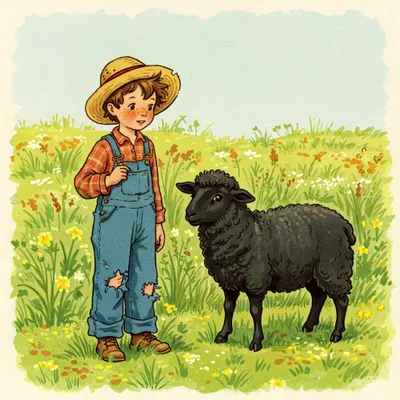Baa Baa Black Sheep

Lyrics
Yes sir, yes sir, three bags full!
One for the master, one for the dame,
And one for the little boy who lives down the lane.
History and Meaning
There are two main theories to the origins of baa baa black sheep, either as a response to a medieval wool tax or linked to Britain's dark history of Slave trading.
The Great Wool Tax of 1275
King Edward I introduced a tax on wool, where the proceeds of wool was shared three ways, between:
- the King
- the Church
- the farmer
In the original version there was 'none for the little boy who lives down the lane'. A version of the rhyme from 1744 went:
Bah, Bah, a black Sheep, Have you any wool? Yes old mate I have Three bags full, Two for my master, One for my dame, None for the little boy That cries in the lane.
The sheep's black color made it less valuable than white wool. White wool could be dyed more easily into other colored clothing. This is also the origin of the phrase 'black sheep of the family' to mean someone who has done something bad that brings embarrassment or shame to his or her family.
The slave trade - is baa baa black sheep racist?
Another theory is that the rhyme hides a racist meaning dating back to the British slave trade. Between 1662 and 1807 Britain sold around 3 million Africans into slavery in the Americas. This theory has lead to the rhyme being discouraged in its original form in schools, instead changing the rhyme to alternate between different colors of sheep. For instance, 'baa, baa, blue sheep, have you any wool?' followed by 'baa, baa, green sheep, have you any wool?'.